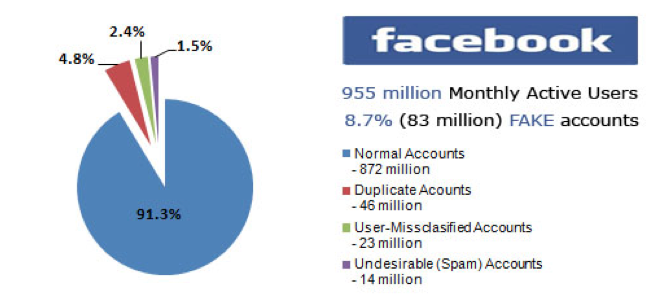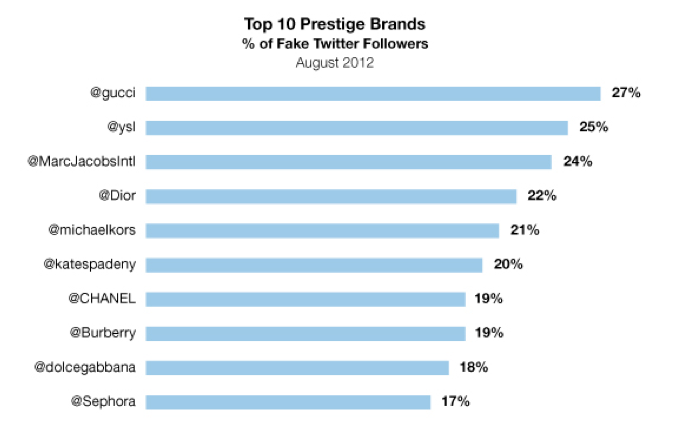Lately big companies have been cheating the social media game and paying other people to get them Likes on Facebook to make their company look more reputable and popular. After reading this article, you may be more cautious of who you’re doing business with and if they are truly reliable.
Fake likes could be fake accounts using a spammy email address to sign-up then ‘like” their company page and do this multiple times to make it appear as if they have more engagement with people than they really do. And it gets worse. Websites such as Likefake.com are giving people the ability to type in a fake number for their Facebook Like button on their web sites, their slogan being “Real like button, fake like count.” Then you have websites like Buildmybuzz.com where you can buy a package of X amount of likes for a certain amount of money to get Likes from “real users.” Note: even if these are real profiles, buying “likes” for your page is also against the terms of service on Facebook.
According to BBC.com, 8.7% of Facebook users are not real. This year, there are 950 million Facebook accounts, which means over 83 million profiles, are being fake liked! According to Business Insider, Dell had reportedly lost over 107,000 likes in one day during a “fake fan purge.”
Facebook is not the only website affected by fake fans. Websites like Twitter and YouTube are getting fake views in order to get profiles featured. Sure, this all sounds great in order to get your views higher, but there is no guarantee. Some of the most well known brands are culprits of having fake followers, though they might not know it. The Internet can be a tricky place.
TIP: When finding a company to market your product or business, ask them how they obtain their Facebook likes and their process, along with what you are getting for your money. Make sure they are not doing anything illegal or anything that could hurt your business in the long run.
In the end, fake likes do nothing for a company because those fake accounts are not buying their product, promoting it or engaging with the company. CNN mentions in a past article that Facebook is making improvements to it’s “site integrity system” and they are working on a site sniffer to remove questionable accounts or likes that have been gained using a service that gains profit.
So think before buying these “services” because not only do they violate Facebook’s terms of service, but also you are essentially wasting your money because Facebook is making its rounds to delete these fakers this past September and this upcoming fall/winter. They determine these fakes by their “profile rules” which state that you cannot have an account that is not yours or make one on someone else’s behalf. Some use animals or cartoons as their pictures, or use a fake or silly name. These would be considered fake. If you have one for your pet, you’re not allowed to make it a profile, you’re supposed to make it as a “fan page.” Another way they are determined is by what you post. If an account is spamming walls, messages and more with bogus “offers” or “junk mail” then they will be caught for deletion. Your business page could also be in danger of deletion if your account is detected of buying these fake likes. CNN has also stated that if your Facebook account is deleted BY the website, you cannot make a new one without getting permission from the company.
How to know a Facebook like is fake:
- Doesn’t interact
- Has a fake picture uploaded (cartoon, supermodel, car)
- Only a few friends
- Hasn’t posted anything on their own page
Sites like LikeFake.com are not banned because they’re just pretending you have those “likes” in order to draw more people in to “like” your business as well; others user Fiverr.com to offer their services for people to pay them. Sites like this cannot be shut down because it’s not the site doing it, it’s the users; they will always find a loophole to avoid legal trouble.



